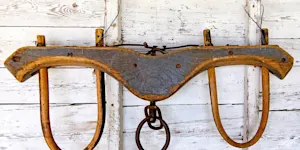What Makes This Word Tick
For a word that sounds like a command straight out of a knight's playbook, "fortify" is all about adding strength and vigor to something — be it a castle or your morning orange juice with some extra vitamin C. It’s the kind of word that reminds us not all defenses are built of stone; sometimes, they're just about boosting the robustness of what we already have.
If Fortify Were a Person…
Picture a meticulous architect like Leonardo da Vinci with a modern-day twist — perhaps someone who sips green smoothies while sketching out plans for eco-friendly skyscrapers. This individual would be all about creating things that stand the test of time, whether that means fortifying the immune system or reinforcing the base of a majestic fort.
How This Word Has Changed Over Time
"Fortify" comes from the Middle English "fortifien," rooted in Latin "fortificare," meaning to make strong. Originally a term strictly for physical structures, today it’s applied to everything from food products to personal resolve. Its journey reflects how we’ve expanded our understanding of strength beyond bricks and mortar.
Old Sayings and Proverbs That Use Fortify
While it might not pop up in proverbs word-for-word, you could consider the sentiment nestled within "An ounce of prevention is worth a pound of cure." The essence of fortifying is all about preparing and protecting, much like this wise adage suggests.
Surprising Facts About Fortify
Did you know that fortifying foods, such as milk with vitamin D, was a public health strategy to combat rickets in the early 20th century? It’s fascinating how "fortify" can shift from military might to the grocery aisle, proving flexibility is a hidden strength.
Out and About With This Word
You’ll often hear "fortify" in commercials promising to bolster breakfast cereals or dietary supplements. It’s also a favorite in architectural and historical circles, particularly when examining ancient city defenses or new-age disaster-proof construction.
Pop Culture Moments Where Fortify Was Used
In HBO’s "Game of Thrones," characters frequently discussed how best to fortify their castles and camps against invaders. It's a plot staple in any storyline involving strategy and survival, where hunkering down is the name of the game.
The Word in Literature
In literature, "fortify" often underscores a hero's preparation phase before embarking on their true journey. Whether it’s a fantasy novel fortifying its characters with enchanted armor or a self-help book encouraging mental resilience, this word is no stranger to the written page.
Moments in History with Fortify
The concept of fortification was pivotal during the Renaissance, influencing how cities were designed to withstand sieges. Think of the great city walls of Carcassonne in France, where fortification was key to survival — a true testament to defensive brilliance.
This Word Around the World
In French, "fortifier" carries the same robust connotation. Interestingly, in Japanese, similar concepts are captured with the phrase "強化する" (kyouka suru), which includes strengthening systems or structures. Each culture has its take on building resilience, physically or metaphorically.
Where Does It Come From?
With roots in Latin "fortis" for strong, and "facere" to make, fortify has Latin elegance inked all over it. In true Roman fashion, it's about reinforcing to resist attacks, a lesson in preparedness that’s never outdated.
How People Misuse This Word
Some might use "fortify" to suggest bolstering an argument, when "buttress" might be a more precise choice. While close in meaning, "fortify" often implies a more physical or material reinforcement than its cousins in rhetoric.
Words It’s Often Confused With
Strengthen: Focuses more on the general increase of power, whereas "fortify" can suggest structural enhancement.
Buttress: Specifically architectural, often referring to support mechanisms rather than overall fortification.
Reinforce: Shares similarities but is used more broadly, not strictly for defensive purposes.
Additional Synonyms and Antonyms
Synonyms include "barricade," "secure," and "protect," while its antonyms could be "weaken," "undermine," and "debilitate."
Want to Try It Out in a Sentence?
After experiencing last winter’s brutal snowstorms, Max decided to fortify his home with extra insulation and storm-proof windows.
















